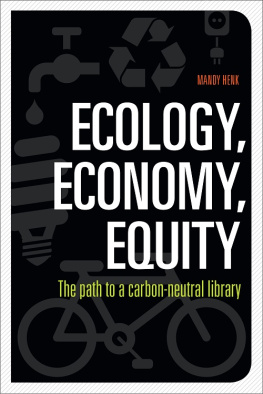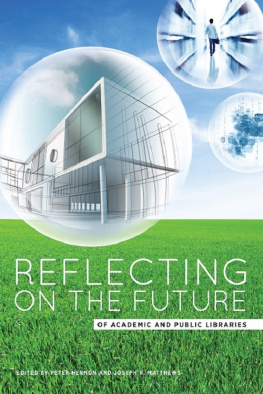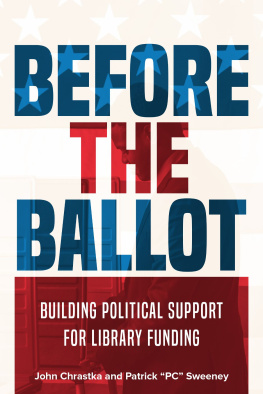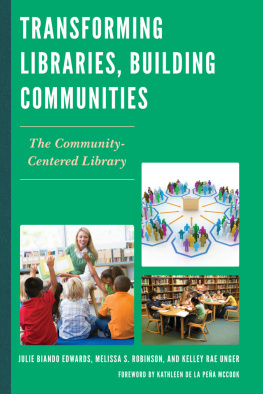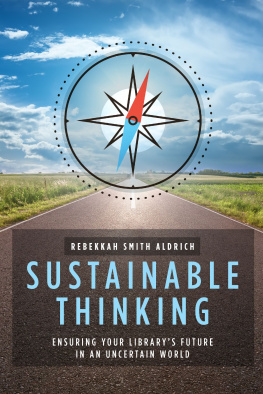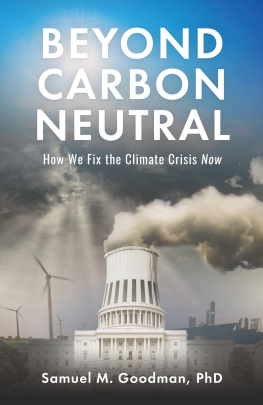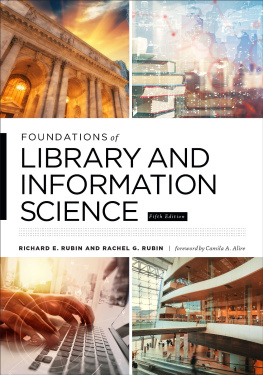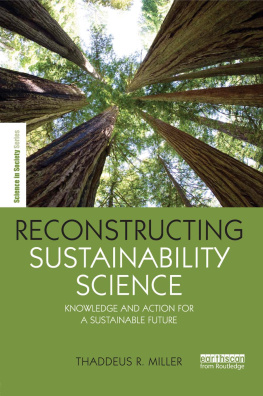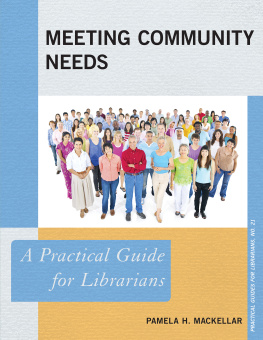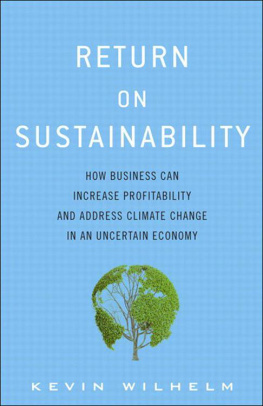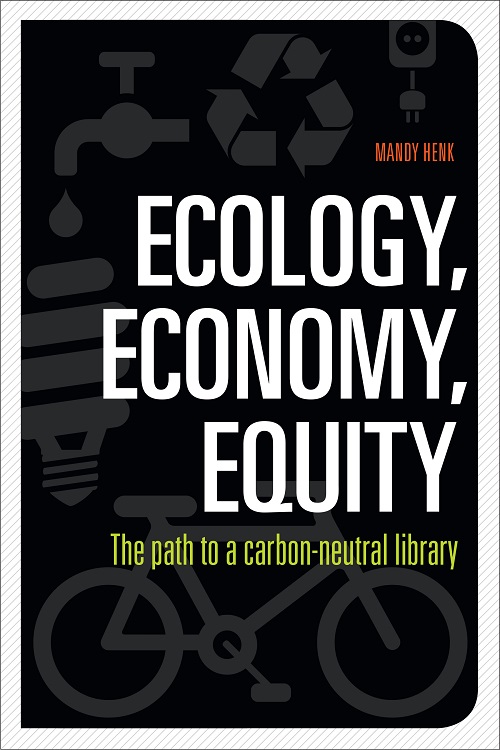
ALA Editions purchases fund advocacy,
awareness, and accreditation programs
for library professionals worldwide.
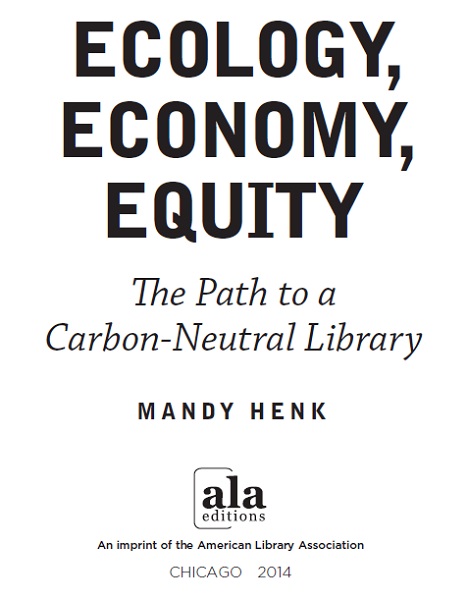
After her first day dusting copies of the Science Citation Index as a student assistant at Clark University (Worcester, Massachusetts) Science Library, Mandy Henk knew she had found her calling. A graduate of Simmons College School of Library Science and currently the Access Services Librarian at DePauw University in Greencastle, Indiana, Mandy devotes her time to activism, motherhood, writing, and librarianship. She was a 2011 Library Journal Mover and Shaker and one of the early guerrilla librarians of the Peoples Library at Occupy Wall Street. She rides an Xtracycle Radish and lives with her two children, husband, four cats, two frogs, and a dog.
2014 by the American Library Association
Extensive effort has gone into ensuring the reliability of the information in this book; however, the publisher makes no warranty, express or implied, with respect to the material contained herein.
ISBNs: 978-0-8389-1217-1 (paper); 978-0-8389-1968-2 (PDF); 978-0-8389-1969-9 (ePub); 978-0-8389-1970-5 (Kindle). For more information on digital formats, visit the ALA Store at alastore.ala.org and select eEditions.
Library of Congress Cataloging-in-Publication Data
Henk, Mandy.
Ecology, economy, equity : the path to a carbon-neutral library / Mandy Henk. First edition.
pages cm.
Includes bibliographical references and .
ISBN 978-0-8389-1217-1 (alk. paper)
1. Library buildingsEnvironmental aspects. 2. Library buildingsEnergy conservation. 3. LibrariesEnvironmental aspects. 4. LibrariesInformation technology. 5. Libraries and community. I. Title. II. Title: Path to a carbon-neutral library.
Z679.85.H46 2014
027dc23 2014006000
Cover design by Kimberly Thornton. Images Shutterstock, Inc.
For Elliott and Hazel
and
In memory of Aaron Swartz
Contents
Appendixes
W riting a book is a terribly difficult and time-consuming process. First, I owe thanks to Jamie Santos and Chris Rhodes at ALA Editions and their patience as the book-writing process dragged out far longer than I expected it to. Their support has been incredible.
I owe thanks to all of my colleagues at the DePauw Libraries, but especially to my director Rick Provine and my staff. Ricks willingness to give me the time I needed to write and my staffs incredible ability to keep the books flowing and doors open has been simply amazing. Candy Anderson, Connie Cree, Jamie Knapp, Jody Matthews, Meghan McCullough, Tina Oetken, Thea Warren, and Michelle Zimmerman will surely go down in history as the best, most skilled, and most dedicated library assistants in the history of libraries. Thanks also to Pheobe Migliano for her assistance in editing and fact-checking. I could not have finished this project without their support. Special thanks too to Bruce Sanders for reading every draft and providing valuable feedback. His thoughts and contributions have been invaluable to me, and I owe him a debt of gratitude. Thanks also to Meryl Altman and Kellie Dawson for reading early drafts and providing me the encouragement I needed to go on and to Jennifer Everett and Glen Kuecker for their encouragement and positive reaction when I first asked if they thought a book on sustainability in libraries was a good idea.
Like many mothers, I struggle with finding an appropriate work-life balance. This book could not have been written without the many people who gave generously of their time to tend to my home and children while I worked. My husband, Chris Henk, whose willingness to take on more than his fair share of the household duties on occasion enabled me to write late at night and on weekends. Sara Crowe and her endless patience with my daughter and my somewhat unorthodox schedule. Ruth Poor and Taylor OBrien who are the best combination nanny and research assistant any mother/author could ever want. Without them, I could not have written this book.
Finally, massive upsparkles to all my fellow guerrilla librarians at the Peoples Library at Occupy Wall Street. You have all provided me with inspiration, support, and the courage needed to write this book. You have been wonderful friends, great colleagues, and strong allies. Solidarity.
W hen I was a girl, there was a small creek that ran near my home. It wasnt really a creek, it was a drainage ditch designed to catch runoff from the houses around it and send the water into the sewage system. But its whole length was surrounded by trees and honeysuckle bushes, so it felt very much like a natural creek to me, especially since it usually had a small amount of water in it. Enough so that I and the other neighborhood children could pretend it was a creek and get good and muddy in it. When it rained hard, the ditch filled to the very brim and we could pretend it was a river. It never got too big to jump over though, and at the height of some summers it even dried up.
On May 3, 2010, I glanced at the news online from my office in Indiana and was startled to learn that my hometown of Nashville, Tennessee, was flooding. I watched in shock as pictures came over the web. Pictures of places I have known my whole life, now submerged under massive amounts of water. Places that I had never imagined floodingnor had anyone else. The torrential rains only lasted for two days, but they brought almost 20 inches of rain and cost 31 lives. In Nashville, the amount of rain doubled the previous record for a two-day event. The Cumberland River crested at 51 feet, a level not seen
The thing that really brought home the destruction, though, was the creek. The little drainage ditch that I had played in as child transformed into a raging river. It overran its concrete banks, knocked down honeysuckle bushes and young trees, and spilled out into the backyards and basements of families up and down the whole street. The little trickle of water, so small it dried up completely on occasion, had managed to bring mud and chaos to the bucolic street I called home for so many years.
For me, the flooding of Nashville brought home the need to take climate seriously and begin making changes in my life and in my work. For others, it may be the floods in Australia, Pakistan, Thailand, or Colombia;
The scientific literature shows that the need to develop carbon neutral economies and societies has become even more urgent in recent years. The very best guidance produced by scientists is that we must reduce the carbon in our atmosphere to below 350 parts per million (ppm) and hold it there.
What does all this mean to librarians? And what do we need to do to prepare our libraries for the world we have createdthe world Bill McKibben has named Eaarth? Climate change presents a very real threat to the world we have built and the world in which our libraries and the institutions they serve have thrived. The realities of climate changeboth the already increased dangers we face and the urgent need to drastically reduce the amount of carbon we release into the atmosphererequire librarians to develop new practices in our collection building and programming as well as a new understanding of the natural world and our relationship to it. If we fail to make this transition, we risk being left behind in the scrap bin of history as a relic of the Carbon Age. If we succeed in this transition, we can help lead our communities and institutions forward into a new sustainable future, one with healthy libraries and a healthy ecosystem.
Next page
